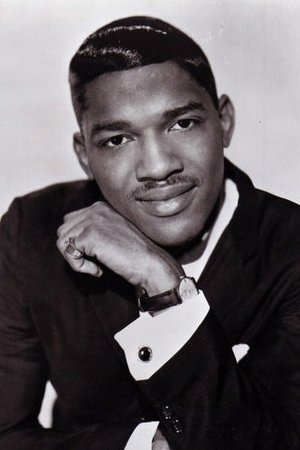Edwin Starr (1942-2003)
Alias:
Charles Edwin Hatcher
Birthplace:
Nashville, Tennessee, USA
Born:
January 21, 1942
Died:
April 2, 2003
Charles Edwin Hatcher (January 21, 1942 – April 2, 2003), known by his stage name Edwin Starr, was an American singer and songwriter. He is best remembered for his Norman Whitfield-produced Motown singles of the 1970s, most notably the number-one hit "War". Born in Nashville and raised in Cleveland, Ohio, he later lived in Detroit while singing for Ric-Tic and Motown Records. He was backed by the band that became known as "Black Merda". Hawkins and Veasey of the group played on most of his early hits on the Ric Tic Label. Starr's songs "Twenty-Five Miles" and "Stop the War Now" were also major successes, in 1969 and 1971 respectively. In the 1970s Starr moved to England, where he continued to produce music and resided until his death. Charles Edwin Hatcher was born in Nashville, Tennessee, on January 21, 1942. He and his cousins, soul singers Roger and Willie Hatcher, moved to Cleveland, Ohio, where they were raised. In 1957, Hatcher formed a doo-wop group, the Future Tones, and began his singing career. However after just one single, he was called up for military service in the United States Army for three years, where he was posted to Europe, following the end of his service he decided to make music his career, and joined the musical group of Bill Doggett. Hatcher, adopted the name Edwin Starr at the suggestion of Doggett's manager Don Briggs, and made his solo recording debut in 1965 for the Detroit record company Ric-Tic. The song that launched his career was "Agent Double-O-Soul" (1965), a reference to the James Bond films, already popular at the time. Other early hits included "Headline News", "Back Street", and "Stop Her on Sight (S.O.S.)". While at Ric-Tic, he wrote the song, "Oh, How Happy", a number 12 Billboard Hot 100 hit in 1966 for The Shades of Blue (he would go on to release a version of the song with Blinky in 1969) and sang lead for the Holidays on their number 12 R&B hit, "I'll Love You Forever". At Motown he recorded a string of singles before enjoying international success with "Twenty-Five Miles", which he co-wrote with producers Johnny Bristol and Harvey Fuqua. It peaked at number 6 in both the Hot 100 and R&B Charts in 1969. It was when Motown's Berry Gordy became frustrated with smaller labels like Ric-Tic stealing some of the success of his company that he bought out the label. Many of Starr's Ric-Tic songs (subsequently owned by Motown) like "Back Street" and "Headline News" became favored northern soul classics. His early Ric-Tic hit "Stop Her on Sight (S.O.S.)", was reissued in Britain (with "Headline News" as its B-side) in 1968, and it performed better than the original release on the UK Chart, surpassing the original number 35 and peaking at number 11. His 1970 song "Time" also helped to establish him as a prominent artist on the northern soul scene. ... Source: Article "Edwin Starr" from Wikipedia in English, licensed under CC-BY-SA 3.0.





